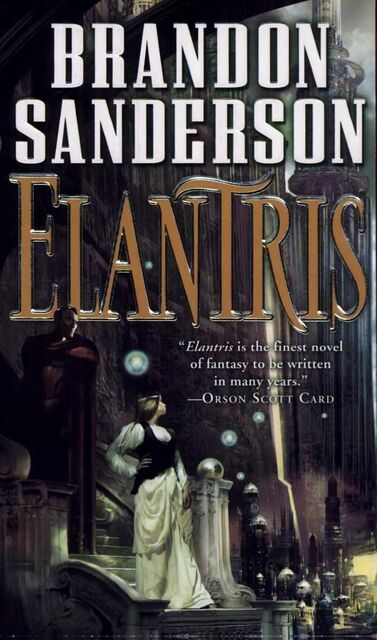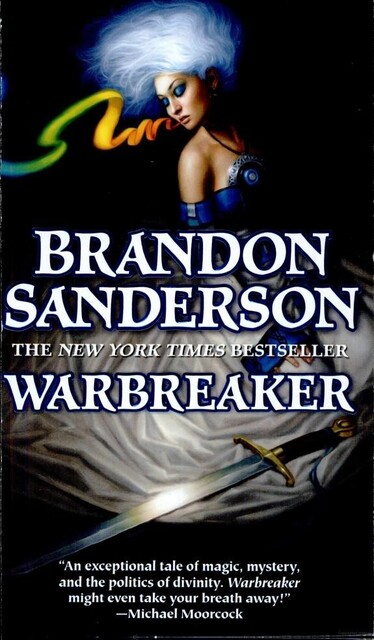- (https://b-ark.ca/ksKKwg)
I’m riding in the 2025 Enbridge Tour Alberta for Cancer, raising money for the Alberta Cancer Foundation, and have so far raised $2,744, exceeding my $2,500 goal and surpassing my 2024 effort!
Help me by donating here
And remember, by donating you earn a chance to win a pair of hand knitted socks!
- (https://b-ark.ca/caaS_S)
I wonder when the @Alberta_UCP and @JasonNixonAB will admit they’ve been lying about their park closure policy? Here we see they either don’t have usage data to back their policy, or they’re withholding it. Oops.
- (https://b-ark.ca/GGo8Wq)
I can’t believe I only just discovered the joy of the @MST3K 24/7 Twitch channel… just in time for Turkey Day!
- (https://b-ark.ca/4aOwKi)
A beautiful Thursday riding solo at @MarmotBasin. I can’t think of a better way to socially distance!
- (https://b-ark.ca/o4mgGi)
I was going to fill out some @Alberta_UCP surveys, but it turns out they’re just leading questions and false dichotomies; a tour de force in bad survey design! It’s almost like they don’t actually care about public consultation.
- (https://b-ark.ca/kMKgGI)
Finally got a #DefendABParks sign. Gotta show support and make the @Alberta_UCP take notice.
Review: The Final Empire
Review of The Final Empire (Mistborn #1.0) by Brandon Sanderson (9780765311788)★★★★★
(https://b-ark.ca/yiuY88)An exceptional first installment of one of my favourite series, I decided to go back and re-read the series as part of my dive into the Cosmere. I was not disappointed!

For a thousand years the ash fell and no flowers bloomed. For a thousand years the Skaa slaved in misery and lived in fear. For a thousand years the Lord Ruler, the "Sliver of Infinity," reigned with absolute power and ultimate terror, divinely invincible. Then, when hope was so long lost that not even its memory remained, a terribly scarred, heart-broken half-Skaa rediscovered it in the depths of the Lord Ruler's most hellish prison. Kelsier "snapped" and found in himself the powers of a Mistborn. A brilliant thief and natural leader, he turned his talents to the ultimate caper, with the Lord Ruler himself as the mark.
Kelsier recruited the underworld's elite, the smartest and most trustworthy allomancers, each of whom shares one of his many powers, and all of whom relish a high-stakes challenge. Only then does he reveal his ultimate dream, not just the greatest heist in history, but the downfall of the divine despot.
But even with the best criminal crew ever assembled, Kel's plan looks more like the ultimate long shot, until luck brings a ragged girl named Vin into his life. Like him, she's a half-Skaa orphan, but she's lived a much harsher life. Vin has learned to expect betrayal from everyone she meets, and gotten it. She will have to learn to trust, if Kel is to help her master powers of which she never dreamed.
This saga dares to ask a simple question: What if the hero of prophecy fails?
So I checked Goodreads and I’m a little shocked to discover it’s been over seven years since I first read The Final Empire. As a result, while I remembered the rough beats in the storyline, I’d long forgotten the details and so in many ways this felt like a fresh read. I’m happy to say my view of the book has absolutely not changed since then, and in fact having read more of the Cosmere–and perhaps having changed a bit myself in the intervening years–I think I’ve come to appreciate it even more.
Now, I’m going to say up front: this review is gonna be jam packed with spoilers for books across the Cosmere. You have been warned!
Continue reading...Review: Elantris
Review of Elantris by Brandon Sanderson (9780765311771)★★★★
(https://b-ark.ca/Ou8ws6)How do you summarize Elantris? It’s got mystery, magic, romance, action, political intrigue… and it all works while avoiding falling into classic fantasy tropes and cliches.

Elantris was the capital of Arelon: gigantic, beautiful, literally radiant, filled with benevolent beings who used their powerful magical abilities for the benefit of all. Yet each of these demigods was once an ordinary person until touched by the mysterious transforming power of the Shaod. Ten years ago, without warning, the magic failed. Elantrians became wizened, leper-like, powerless creatures, and Elantris itself dark, filthy, and crumbling.
Arelon's new capital, Kae, crouches in the shadow of Elantris. Princess Sarene of Teod arrives for a marriage of state with Crown Prince Raoden, hoping -- based on their correspondence -- to also find love. She finds instead that Raoden has died and she is considered his widow. Both Teod and Arelon are under threat as the last remaining holdouts against the imperial ambitions of the ruthless religious fanatics of Fjordell. So Sarene decides to use her new status to counter the machinations of Hrathen, a Fjordell high priest who has come to Kae to convert Arelon and claim it for his emperor and his god. But neither Sarene nor Hrathen suspect the truth about Prince Raoden. Stricken by the same curse that ruined Elantris, Raoden was secretly exiled by his father to the dark city. His struggle to help the wretches trapped there begins a series of events that will bring hope to Arelon, and perhaps reveal the secret of Elantris itself.
It’s been about a week and a half since I finished reading Elantris, which means once again this review is coming late, well after my initial impressions have faded. So, don’t expect too much.
Despite being his first work, this feels like classic Sanderson to me. We have reversals of classic fantasy tropes. We have powerful female characters leading the fight for justice, something which I’m discovering is a bit of a fixture in Sanderson’s work. We have, of course, a fairly coherent magic system whose rules are the key to the big reveal at the end of the novel. And, of course, we have a bit of a Sanderson avalanche at the end.
I will say, the slow reveal of the magic in this world was a bit frustrating, if only because it proves so critical in the final acts of the book. But, that issue aside, this book was well paced and exciting.
Continue reading...- (https://b-ark.ca/WQu2Gk)
Very nice intro piece on capital ‘S’ Stoicism and how deeply its misunderstood. I wouldn’t label myself a Stoic–I don’t spend nearly enough time on the topic–but it’s had a very profound effect on my own life.
- (https://b-ark.ca/YmWE24)
Finished </span> <a class="p-name" href="https://en.wikipedia.org/wiki/Elantris">Elantris</a>by
(9780765311771) </span>
- (https://b-ark.ca/yyMCsW)
Thank you, James Randi. You were a stalwart defender of facts and reason, something we can use that now more than ever. Thank goodness we have @jref to carry on your legacy.
- (https://b-ark.ca/IaS0sg)
I’ve always found the demoscene incredibly inspiring. The marriage of art and technological innovation never ceases to blow my mind, and MONOSPACE by @p01 is no exception.
Review: Warbreaker
Review of Warbreaker by Brandon Sanderson (9780765320308)★★★★
(https://b-ark.ca/6QKwM2)A standalone novel by Brandon Sanderson, Warbreaker is fascinating for it’s reversal of many tropes, but really shines due to the commentary provided along the way.

Warbreaker is the story of two sisters, who happen to be princesses, the God King one of them has to marry, the lesser god who doesn't like his job, and the immortal who's still trying to undo the mistakes he made hundreds of years ago. Their world is one in which those who die in glory return as gods to live confined to a pantheon in Hallandren's capital city and where a power known as BioChromatic magic is based on an essence known as breath that can only be collected one unit at a time from individual people.
By using breath and drawing upon the color in everyday objects, all manner of miracles and mischief can be accomplished. It will take considerable quantities of each to resolve all the challenges facing Vivenna and Siri, princesses of Idris; Susebron the God King; Lightsong, reluctant god of bravery, and mysterious Vasher, the Warbreaker.
So the entire month of September was a bit of a weird one for me, and so I completely forgot that I hadn’t posted a review for Warbreaker. As a result, this post is both going to be a) a bit of a retrospective after the memories of the book have faded a bit, and b) probably a bit short. But since no one is reading any of this, anyway, well, what do you care??
Continue reading...- (https://b-ark.ca/m26YcE)
We’ve had an astounding fall here in Edmonton. Truly a blessing in a tough year!
- (https://b-ark.ca/wKSiKC)
Finished </span> <a class="p-name" href="https://en.wikipedia.org/wiki/Warbreaker">Warbreaker</a>by
(9780765320308) </span>
IPv6 and self-hosting
A little post about how I’ve used IPv6 and a dual-stack VPS to address common networking issues when hosting services at home.
Many of the non-critical services I run–messaging, RSS, home automation–run on an Intel NUC I’ve hidden away at home. This has advantages over a VPS in that if I need additional resources, I can just add some memory or storage rather than having to move to a new service tier and paying that much more every month. Plus, given how much I’m working and using these services at home, having them hosted locally means higher perceived performance due to lower latency.
Unfortunately, connectivity for services hosted on a residential broadband connection is always a pain in the butt. While over the years my residential broadband connection has been incredibly stable, I still face the challenge of changing IP addresses. And yes, I can set up dynamic DNS, but I’ve always found it relatively fragile (not to mention an enormous hack). Additionally, you have to contend with ISPs potentially blocking ports and so forth. And finally there’s all the issues with NAT, reverse port mappings, internal and external DNS record management, and on and on. Basically it’s painful and brittle.
On what might seem like an unrelated note, IPv6 is still gradually getting deployed. Certainly mobile networks use v6 extensively, but outside that space adoption is still pretty nascent. As a result, it’s always been a bit questionable if deploying v6 at home is worth the trouble (minus the novelty and bragging rights).
But it turns out that, with a VPS and an IPv6 tunnel, you can dramatically simplify the process of hosting services on a residential broadband connection. As a result, this has proven to be the “killer app” that has driven me to truly adopt v6 at home.
Continue reading...

